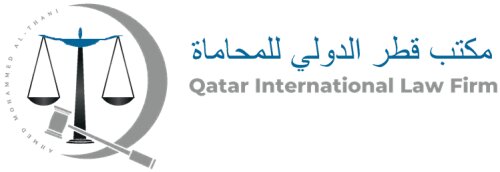Best Faith-Based Law Lawyers in Doha
Share your needs with us, get contacted by law firms.
Free. Takes 2 min.
List of the best lawyers in Doha, Qatar
About Faith-Based Law in Doha, Qatar
Faith-Based Law in Doha, Qatar, primarily revolves around Sharia law, which is derived from Islamic principles and guides many aspects of personal and family life. This legal framework is intertwined with the civil law system and influences areas such as marriage, divorce, inheritance, and personal conduct. Given that Qatar is an Islamic country, Sharia law plays a significant role in both societal norms and legal practices, making it an essential aspect for residents and expatriates to understand, especially in matters that intersect with faith, culture, and law.
Why You May Need a Lawyer
Individuals may require legal advice in faith-based law for various reasons. Common scenarios include navigating family disputes such as marriage contracts or divorce settlements that are governed by Sharia principles. Additionally, issues related to inheritance can be complex, especially for expatriates who may have different faith backgrounds. Understanding the legal ramifications of personal conduct, such as alcohol consumption or dress code, which may have religious implications, also necessitates professional legal guidance. In cases where cross-cultural or interfaith disputes arise, legal experts offer clarity and assistance in aligning personal circumstances with local laws.
Local Laws Overview
Qatar's faith-based legal framework is primarily influenced by the Maliki school of Sunni Islam, which provides guidance on personal status laws and various societal regulations. Key aspects include:
- Marriage and Divorce: These are governed by Sharia law, with specific requirements for marriage contracts and procedures for divorce.
- Inheritance: The distribution of inheritance is strict under Sharia, prioritizing specific family members, which can differ significantly from Western practices.
- Personal Conduct: Sharia law impacts dress codes, alcohol consumption, and public behavior, with non-compliance potentially leading to legal issues.
- Cross-Cultural Engagements: Understanding and respecting local customs and legal requirements are crucial for expatriates and visitors.
Frequently Asked Questions
What is the role of Sharia law in the Qatari legal system?
Sharia law influences personal status laws and religious practices, primarily governing family law, inheritance, and aspects of public behavior.
Can expatriates follow their own faith-based practices for personal matters like marriage?
Expatriates can practice their faith, but personal matters like marriage may still need to align with Qatari laws, depending on their resident status.
How does Sharia law affect inheritance rights?
Inheritance is strictly governed by Sharia principles, prioritizing heirs in a predefined order which might differ from other legal systems.
Is it necessary for expatriates to comply with local dress codes?
Yes, all residents and visitors are expected to respect local customs, including dress codes influenced by Islamic principles.
What are the legal requirements for a valid marriage under Sharia law in Qatar?
A valid Sharia marriage requires consent, documentation, and the presence of witnesses, with additional conditions for Muslims and non-Muslims.
Can Islamic law influence criminal matters in Qatar?
While civil law often prevails in criminal matters, Sharia principles can influence certain offenses, particularly those related to alcohol and public decency.
Are there legal protections for non-Muslims in faith-based matters?
Yes, non-Muslims are allowed to practice their religion and have certain protections, but they must respect the local legal framework.
What is the process for resolving a family dispute under Sharia law?
Family disputes may require mediation and adjudication in Sharia courts, with settlements adhering to Islamic principles.
Can Qatari courts handle international faith-based disputes?
Yes, Qatari courts can address international disputes if they intersect with local laws, often requiring specialized legal counsel.
How do local religious principles affect business practices?
Business practices must adhere to Islamic ethical standards, including prohibitions on interest and certain contractual terms.
Additional Resources
For further assistance and information, you may consider reaching out to:
- Qatari Courts: For official court documents and legal proceedings.
- Ministry of Awqaf and Islamic Affairs: Offers guidance on religious practices and laws.
- Local Law Firms: Many firms specialize in faith-based law and can provide expert legal advice.
- Community Centers: Such centers offer support and resources for expatriates navigating faith-based legal matters.
Next Steps
If you require legal assistance in Faith-Based Law, consider the following steps:
- Consult with a Legal Expert: Seek advice from a lawyer specializing in Sharia and local laws to gain expert insights.
- Understand Your Rights: Educate yourself on your rights and responsibilities under Qatari law and how they impact your situation.
- Prepare Documentation: Gather all relevant documents and records before consulting legal services to streamline the process.
- Engage Local Services: Utilize the services of local law firms or community organizations that can offer more personalized guidance.
Lawzana helps you find the best lawyers and law firms in Doha through a curated and pre-screened list of qualified legal professionals. Our platform offers rankings and detailed profiles of attorneys and law firms, allowing you to compare based on practice areas, including Faith-Based Law, experience, and client feedback.
Each profile includes a description of the firm's areas of practice, client reviews, team members and partners, year of establishment, spoken languages, office locations, contact information, social media presence, and any published articles or resources. Most firms on our platform speak English and are experienced in both local and international legal matters.
Get a quote from top-rated law firms in Doha, Qatar — quickly, securely, and without unnecessary hassle.
Disclaimer:
The information provided on this page is for general informational purposes only and does not constitute legal advice. While we strive to ensure the accuracy and relevance of the content, legal information may change over time, and interpretations of the law can vary. You should always consult with a qualified legal professional for advice specific to your situation.
We disclaim all liability for actions taken or not taken based on the content of this page. If you believe any information is incorrect or outdated, please contact us, and we will review and update it where appropriate.















